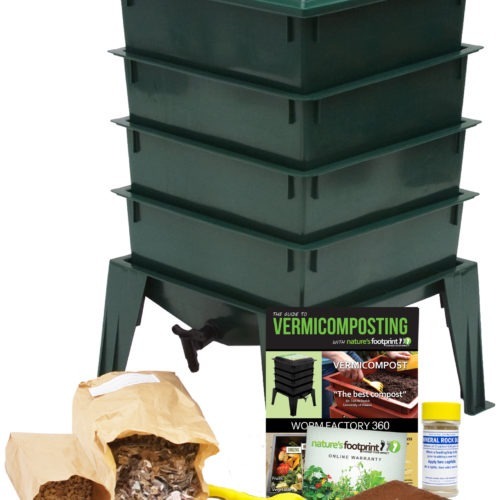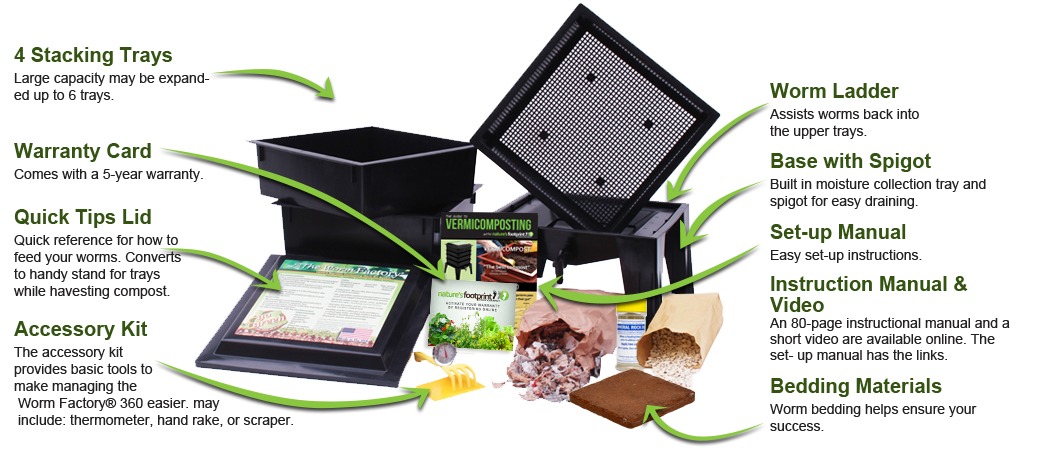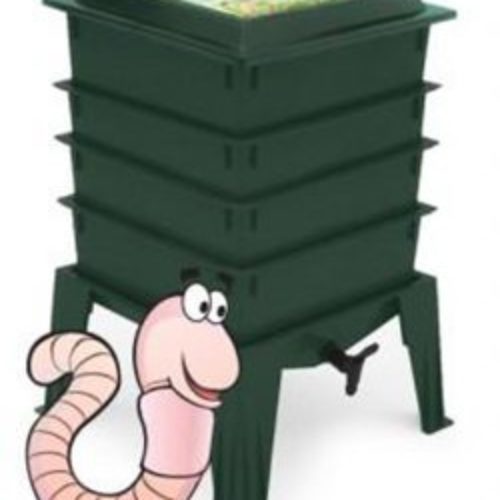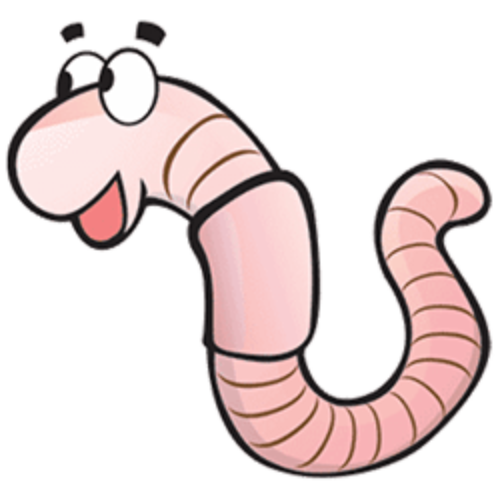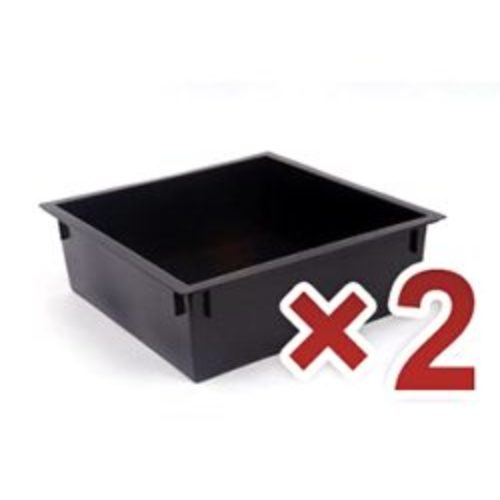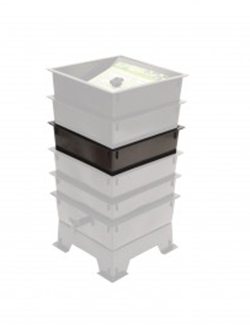Learn the Principles of Vermicomposting: Worm Composting

Worm Composting (Vermicomposting) is easy, good for the Earth, good for your plants, and fun. Worm composting (also known as worm farming) allows you to responsibly dispose of your vegetable food scraps while at the same time creating a nutrient-rich compost that you can use on your indoor or outdoor plants to make them healthier. This article will give you an overview of the key concepts of worm composting. Check out the Worm Composting Quickstart Guide here.
Overview of Worm Composting
Worm composting is a form of composting in which you feed your veggie kitchen waste to a specific type of earthworm known as red wigglers (scientific name is Eisenia Fetida). Vermicompost (worm poop) is better for plants than almost any other type of compost. The composting worms have three jobs: eat, poop, and make babies. Your job is to manage them in a way that maximizes all three.
Worm Composting Container

Almost any container (purchased or built) can be used to contain worms as long as you can vent it somehow or drill holes in it. Worms breathe air through their skin, so air holes are very important. The simplest bin to use when getting started is a plastic storage tote or tub. The 14 to 20 gallon sizes work well. You will need to drill holes in the sides so that the worms can get air. Don’t worry about the holes being so big that the worms will get out. The composting worms won’t go out the holes because they don’t want to leave the nice comfy home that you have made for them. In fact, if they do leave, they will die without moisture, bedding, and food. For more on what container you should use for worm composting read: How to Build a Homemade Worm Composting Container
What Type of Worms are Used in Worm Composting?
Eisenia Fetida or Red Wigglers are the most widely used composting worms. These worms are used because they eat A LOT (up to half their weight everyday!), tolerate being dug through, and are easy to keep contained indoors or out. Red wigglers can be purchased online and mailed to you (in weather that is not too hot or not too cold), or you can try to find a local provider. Redworms (red wigglers) can be found in nature in many climates but gathering your own to start a worm composting bin is very difficult. I recommend purchasing your first pound of worms online from an experienced worm seller.
Bedding for your Worm Compost Bin
Your red wiggler worms need bedding to live in. Think of the worm bedding as their furniture. Any carbon source can be used as worm bin bedding. For example, leaves, shredded office paper, shredded cardboard, and shredded newsprint (no glossy paper) all work well. You can also purchase coir bricks which is a natural fiber made from coconut. The bedding must be moist at all times. For more detailed info on carbon bedding for your worm bin read: Worm Bin Bedding
Moisture Level of your Worm Bin
Red Wigglers need a moist environment to live. The easiest way to provide moisture is to soak the bedding material in water before adding it to the worm composting bin during the set up process. The ideal moisture level is similar to that of a damp sponge. It should feel moist, but when you squeeze it, no water should drip out. You should never have standing water in the bottom of your bin. If you do have standing water, either add some dry bedding or drain some of the moisture off. For more detailed info on the correct moisture level of your worm bin read: Moisture Level of Worm Bin
Feeding Your Composting Worms

What can you feed your worms? You can feed them any vegetable scraps including egg shells and coffee grounds (if you use a paper coffee filter, throw that in too!). You can also feed your worms lint from your clothes dryer and paper towels (use only paper towels that were used to clean up drink spills and do not have cleaning solution on them). Worms are vegetarian, they do not eat meat. Don’t feed them meet, eggs, butter, or oil. They also don’t do well with bread or cheese. Composting worms can handle a small amount of bread and cheese but I would discourage putting them in your worm bin until you have had some practice caring for composting worms. Be careful not to overfeed your red wigglers as this can attract fruit flies and other pests because the red worms won’t be able to eat the food scraps fast enough. For more detailed info on how to feed your red wiggler composting worms read: Feeding Your Worms
Harvesting the Worm Compost

When should you harvest the vermicompost (worm poop)? You won’t harvest for the first time for at least 6 months, after that you can harvest more frequently. When it is time to harvest, you have several options. You can simply dig down to the bottom of the worm bin and pull out a handful of worm castings (poop). This can be added directly to your soil with the worms included or you can pick out the worms and add them back to your bin. Another option is to wait until most of your worm composting bin is worm castings (they eat the bedding too) and then dump the whole bin out on to a tarp on a sunny day. Form a couple small pyramids of worm castings and the worms will burrow into the pyramid because they don’t like the light. Then, carefully brush worm castings off of the outside of the pyramid and set aside. The worms will burrow again. Repeat until almost all worm castings are harvested and you are left with a ball of worms. Refill your bin with fresh bedding and add your composting worms back to the bin. For more in depth descriptions of how to harvest worm compost read: How to Harvest Worm Compost: Learn 7 different methods for Harvesting your nutrient-rich worm poop!
Ready to get started? Then it’s time to read:
How to Make your Own Worm Composting Bin – Step by Step Instructions for Setting up your first Home Vermicomposting System
If you found this article helpful, please share it with a friend. Thanks and happy worm composting!



